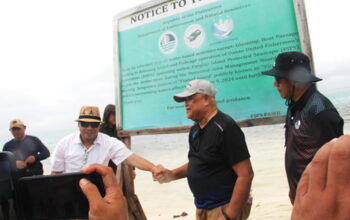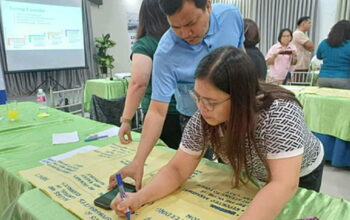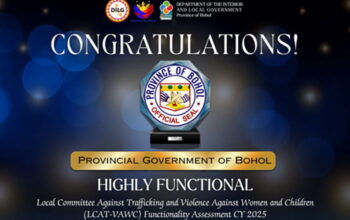
THE supposed potable water in the municipalities and those in refilling stations in Bohol has become “alarming.”
There’s more non-potable water than potable water, Provincial Board Member Lucille Lagunay said. She revealed this intriguing situation in her privilege speech last week during the regular session of the Sangguniang Panlalawigan after she got test results of the water samples from the Provincial Health Office.
“The values derived from the reports are alarming and if I may say so, a violation of our people’s basic human right,” she said.
In her probe in aid of legislation on the matter, particularly level III water system, she found “from the PHO Water laboratory showed an average of 38% potable water and 62% non-potable water for the period January 2021 to June 2022 based on the water samples submitted by sanitary inspectors.”
“Potable water is defined in the Bohol Environment Code as free from impurities in amounts sufficient to cause disease or harmful physiological effects in humans and conforming to latest drinking water standards.”
Data she showed in her speech revealed that a total of 705 non-potable water as against 797 potable water of level III water system (individual house connection) during the period January to June 2022.
This (705) is higher than 620 (non-potable) for level III in 2021.
There are 406 non-potable than 1,964 non-potable produced by water refilling stations of the same period this year, she said.
The figure (406 for non-potable) is higher than the 306 in water refilling stations for the period January to December 2021.
When asked if she’s willing to make public her findings and names the towns, including water refilling stations, she said she will when time comes.
She said in interview that the quality for potable water appeared to be neglected in past administrations.
She said in separate interview that the attention was given to the water pollution only during the administration of Gov. Aris Aumentado’s father, then Governor Erico B. Aumentado. The former governor issued an executive order for regular reporting of water sampling and test results from the municipalities, she added.
Another hitch is that “extent of compliance by sanitary inspectors of respective areas and municipalities in submitting water samples for examination. Fourteen (14) observed high compliance at 75%-94% and eleven (11) complied at an average of 50%-74%.”
“However, eighteen (18) areas and municipalities have low compliance at below 50% while one municipality is absolutely non-compliant without submission of any water sample for the period January 2021 to June 2022.” But she did not name the said town.
This prompted her to propose to her colleagues for the creation of Provincial Water Quality Management Task Force to regularly monitor and analyze the quality of all water sources in every municipality to ensure public health and general welfare.
The matter was referred to the health committee.
“To maintain potable water sources in the province would mean sustainable development of its people and economy. Let’s make Bohol a safe and healthy place to live in,” Lagunay concluded. (rvo)



